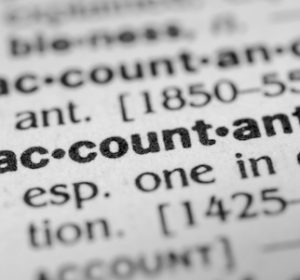News
Accountant vs. Bookkeeper: What You Need to Know
2017-02-14 | by Gene B. Reynolds, CPA
 The future of your business depends on the accuracy of your financial information and insights gained from that information.
The future of your business depends on the accuracy of your financial information and insights gained from that information.
It’s important for business owners to know the capabilities of their accounting personnel to receive accurate and timely information as well key performance indicators.
Titles used by accounting staff to describe their skill sets can be confusing and misleading.
It’s important for owners to be aware of the terms “accountant” and “bookkeeper” and how the skill sets those infer are critical to matching the owner’s needs with the job that needs to be done.
Typical Qualifications Differ
It’s important to note the terms “accountant” and “bookkeeper” are unfortunately used by accounting personnel regardless of education, certification, or experience. If you are in the market to hire an accountant or a bookkeeper, then pay careful attention to their resume and references.
Bookkeepers should have an associate’s degree or two to four years of solid bookkeeping experience. However, even a recent high school graduate may use the title bookkeeper even though they possess little experience or have limited technology/accounting software skills.
Accountants typically have a bachelor’s degree in accounting, finance or a related field. They may also be a Certified Public Accountant (CPA) and specialize in specific areas such as tax planning, preparation, and succession planning.
If you’re unsure about the level of expertise your company requires, you can always partner with an accounting firm capable of assisting various owner-operated businesses so you can match the skill sets needed with your expectations.
Reactive Versus Proactive
Generally speaking, an accountant is typically thinking with a more proactive mindset while a bookkeeper is typically more reactive and transaction-oriented. Both have tasks that overlap and can perform a variety of duties, but the following are the most common.
A bookkeeper can:
- Record financial transactions
- Post debits and credits
- Maintain a general ledger
- Run payroll
An accountant can:
- Provide tax services
- Assist with succession planning
- Review ledgers and offer insights including the preparation of reports useful to the owner/operator of the business.
- Prepare and analyze financial statements
All functions are important, so it may be best to partner with a full accounting team you feel comfortable working with and are confident they’ll guide you in the right direction.
Both Have Their Benefits
Determining if you need both depends on the size of your business, the number of transactions and if you’re trying to acquire funding or are just functioning off the capital you make throughout the year.
Smaller companies typically use a bookkeeper to handle daily recording and bring in an independent accountant or CPA firm at the end of the year to deal with final reconciliations, file tax returns, and share financial insights.
Larger companies typically have an in-house accounting department with a bookkeeper or an ongoing relationship with a reputable accounting firm like Reynolds and Associates who can handle all of your accounting needs.
Contact Reynolds and Associates to learn about our particular bookkeeping and accounting services.
About the Author
Gene B. Reynolds, CPA
Gene is the Founder and President of Reynolds and Associates, a Houston-based CPA Firm. He has spent 42 years helping Houston entrepreneurs navigate their enterprises through both calm and stormy waters.